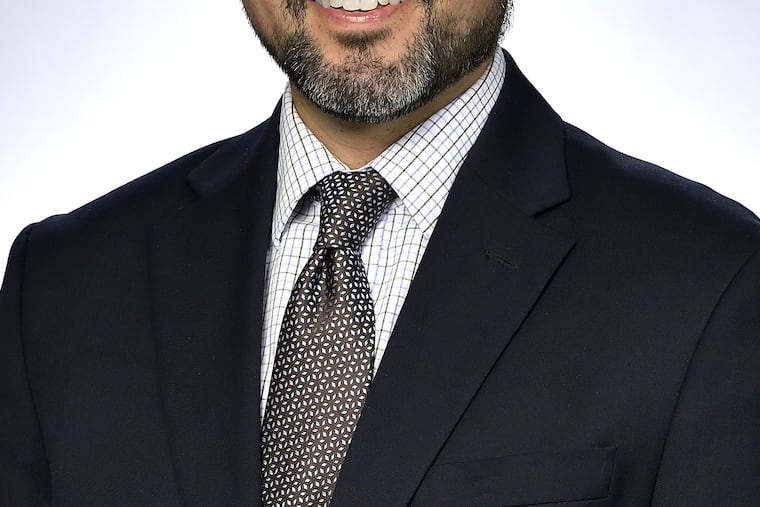The past president of the Philadelphia County Medical Society on bringing physicians together
"Philadelphia is the conduit through which so many physicians in this country carry on the right traditions," outgoing president Philadelphia Medical Society John Vasudevan said.

A sports medicine physician at Penn Medicine, John Vasudevan spent the past year as the president of the Philadelphia County Medical Society, working to unite physicians in the city and to deepen their community connections.
Members of the physicians’ professional association ran CPR workshops for neighborhood block captains and raised money for Students Run Philly Style, an organization that promotes healthy living through sports.
Vasudevan’s term ended in June. Domenick Bucci, vice president of medical management and medical policy at Independence Blue Cross, was elected his successor.
The Inquirer spoke to Vasudevan in an interview lightly edited for brevity and clarity about the tradition of the medical society, what worries physicians, and how he used his leadership role to foster community.
Who is the Philadelphia County Medical Society for?
We represent not Penn, not Jefferson, not Temple, but the profession. And at all stages of life, from the first day of medical school until you retire and even past that. So the idea is to support physicians throughout their entire journey as one, regardless of their institution, regardless if they are primary care or a specialist, regardless if they’re employed, or if they’re in private practice.
We welcome DOs [doctors of osteopathic medicine] into our ranks. And we are getting an increasing amount of DO physicians who are leaders within our organization. What we want more than anything are good doctors doing the right work, regardless of how they got there.
How does a medical society in Philly differ than in other places?
Philadelphia was the first really big, important historic city in this country, before New York, before DC. This is where Benjamin Franklin started Pennsylvania Hospital.
» READ MORE: Take our quiz: Can you tell which Philadelphia hospital or med school achieved these “firsts”?
To this day, we have such a large amount of training, schools, and residency and fellowship programs here. There is a commonly repeated stat that roughly one out of every six physicians in this country at some point trained in Philadelphia. So myself, I’m from Wisconsin. Originally, I came out here to train, and I stuck around. But a lot of people come here, learn something, and then they move on.
Philadelphia is the conduit through which so many physicians in this country carry on the right traditions, the right knowledge base — no matter where they go. So we carry that extra important role to make sure that we are protecting the best parts of American medicine.
What concerns have you heard from physicians?
Physicians love their job when they feel that their ability to have an autonomous decision about how to care for patients, when they’re discussing it directly with a patient based on their knowledge, their expertise, their experience, is honored.
It’s frustrating when you order an MRI because you have a serious concern, and you know that imaging is going to potentially change your care for that patient, and then have an insurance company say, “hey, it’s been five weeks of physical therapy, but we need exactly six weeks in order to get that across the finish line.”
How does the society come together as a community?
We created something called the doctors lounge in collaboration with the College of Physicians of Philadelphia. We had informal after-hours events where physicians, trainees, and members of either organization could meet together, socialize over some food and drink, and then sit down with physicians who then got a MBA [master’s of business administration] or MPH [master’s of public health] or MHA [master’s of health administration]. They found different pathways to be leaders as physicians. How do you improve your business skills with or without that extra degree? How do you improve your public health skills, your leadership or administrative skills with or without? That is a way to try to tell physicians “listen, there’s a lot of different pathways you can take your medical career.”
What’s your pitch for a local physician who isn’t a member?
It is an avenue for education to yourself as a physician. It’s an avenue for growth. It’s an avenue to make things better for yourself, your workplace, and your community.
Most physicians who get upset with the system, they know they’re hindered by the boundaries of that clinic or hospital or insurance company. But change is always possible, and you just have to find a way to do it. And joining the society isn’t the only way, but it’s a great way.